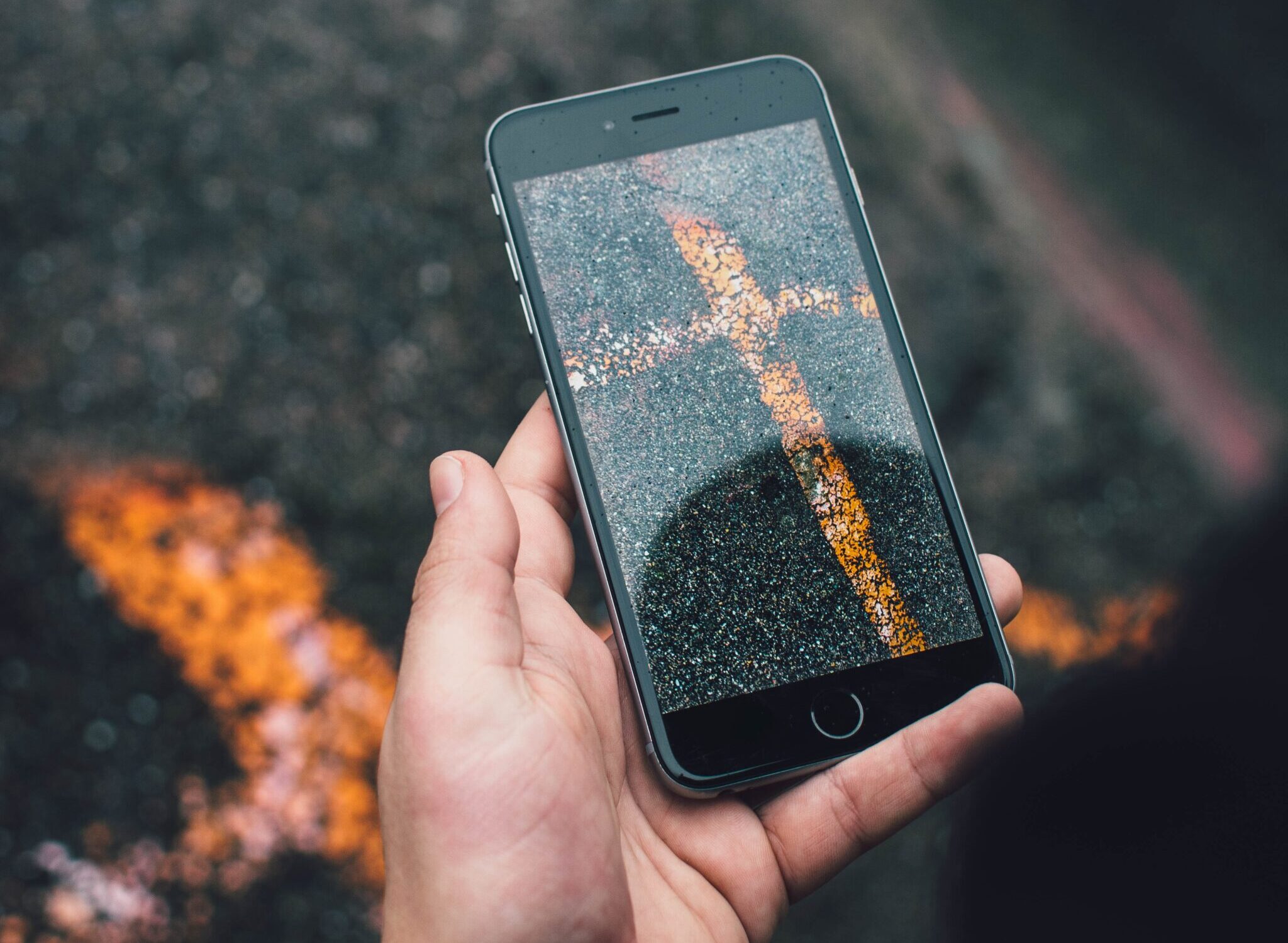
The following are my experiences, but if they’re also your experiences, perhaps you can employ some of the measures I took in order to restore parts of my life and draw closer to Jesus.
It finally happened. I finally realized what many others had already realized about their phones, but I didn’t want to believe it. No, this isn’t about the government listening to phone conversations or wild-eyed conspiracies about 5G. No, by “phone tapped” I mean being exhausted by the constant attention that I give my phone and what is encouraged by the device itself. The constant access that my phone had to me (better yet, the access that I had to it) was having an impact not only on my life but on my faith, and it wasn’t a positive one.
Social media, text messages, phone calls, apps, pictures, games, etc.—all of it gnaws at us little-by-little. Aside from being exhausted with it, I saw the harmful effects that my phone and “screen time” had on my prayer life, my quiet time with God. While there are many benefits to having a smartphone (like access to thousands of Bible resources, the ability to connect with people in various geographic locations, quick access media and news, etc.), there are a lot of drawbacks. For me, those drawbacks included an inability to enjoy God when things weren’t busy, a subconscious and incessant need to periodically check my phone’s apps, and a default reaction to browse because of idle moments. Now, to be clear, I’m not the first to discuss the impact of the smartphone and/or social media (just check out the following links here, here, and here). Yet, this was the first time I realized that after years of conditioning, my personal experience started to match concepts that others had addressed but which I’d dismissed.
No Room for Quiet
Waiting in the doctor’s office for an appointment? Whip out the phone. Stuck in traffic? Grab your phone and hope law enforcement isn’t around. Watching a boring movie that someone else picked out? Whip out that phone. Awkward silence while on a date or at a restaurant with friends? Just pull out the ol’ smartphone. I think you get the hint. We no longer have comfort with silence or room for quiet. Yet, studies show that our bodies crave quiet.1
Resolution: I became a little more intentional with silence, whether turning the phone off or seeking out quiet encounters and NOT looking at the phone. Embracing times of boredom and silence was therapeutic for both my natural mental concerns and my spiritual concerns.
Thirst Everywhere
People often mention social media and “thirst traps,” or photos/posts meant to entice others and/or solicit responses, often using a provocative picture or heading. The main goal of these traps is attention. Yet, while many condemn these “traps,” how many of us seek attention and likes? I thought I’d be the furthest thing from that, and while Scripture-based posts are hardly the type of posts that generate “thirst” or “likes,” I’d be lying if I said I hadn’t found myself checking how many likes a particular biblical post had. It was as though it served as some type of validation or measure of how articulate or profound the post was. That’s not the type of person I want to be, and I don’t believe it’s what God wants (by the way, bringing God into the picture regarding “counting likes” isn’t a stretch if we consider the time he judged King David for counting his strength through a military census. See 1 Chron. 21)
Resolution: To counter this, I frequently break from social media and do so without warning others (the one’s in my closest circle know how to reach me). It’s just good to detox. I usually delete the apps and remove any auto-login websites, especially if I’m inclined to “count” likes.
Scatterbrained Prayer
It took a while, but I started realizing my time for prayer and worship was often filled with constant thoughts of other things. It could be other tasks that I needed to complete, the concerns and trials of others, or simply remembering sermon notes that I’d forgotten to write down. Whatever it was, it was distracting, and it wasn’t God. It was me. The years of smartphone use meant I’d conditioned my brain to receive constant stimuli. It was hard, downright difficult to pray and focus singularly on God. This was grievous for me because I love Him, I want to love Him more, and I want to love Him rightly. Jesus is certainly worthy of my undivided attention for times of prayer and meditation.
Resolution: Step one of my fix was to use the “Focus” feature on the iPhone, use airplane mode, or simply leave the phone in another room. Step two was to spend more frequency appreciating God’s beauty in a deliberate way. It didn’t have to be for hours, even if only 10-15 mins, it was necessary to find those times and use them to appreciate God. It could be prayer, but sometimes it was simply appreciating God and telling Him how great He was/is.
Conclusion
I know this isn’t exhaustive by any means. If this applies to you, you’re “phone tapped,” and it’s taking its toll on your relationship with God, I encourage you to try some of these actions and pray that the Spirit would reveal ways to draw closer to Him. In closing, consider the seemingly prophetic words of A.W. Tozer (1897-1963) from his acclaimed book, Pursuit of God:
“It is a gift of God, indeed, but one which must be recognized and cultivated as any other gift if it is to realize the purpose for which it was given. Failure to see this is the cause of a very serious breakdown in modern evangelicalism. The idea of cultivation and exercise, so dear to the saints of old, has now no place in our total religious picture. It is too slow, too common. We now demand glamour and fast flowing dramatic action. A generation of Christians reared among push buttons and automatic machines is impatient of slower and less direct methods of reaching their goals. We have been trying to apply machine-age methods to our relations with God. We read our chapter, have our short devotions and rush away, hoping to make up for our deep inward bankruptcy by attending another gospel meeting or listening to another thrilling story told by a religious adventurer lately returned from afar.” 2

1. Bryan Robinson. “Why Neuroscientists Say, ‘Boredom Is Good For Your Brain’s Health.” Forbes. September 2, 2020. https://www.forbes.com/sites/bryanrobinson/2020/09/02/why-neuroscientists-say-boredom-is-good-for-your-brains-health/?sh=1b699efe1842#:~:text=Social%20neuroscientists%20have%20found%20that,embryonic%20work%20ideas%20to%20hatch. Accessed June 18, 2022.
2. Taken from https://www.goodreads.com/author/quotes/1082290.A_W_Tozer?page=57 (accessed June 18, 2022). A portion of this quote appears in the Christian Post article linked earlier in this post.